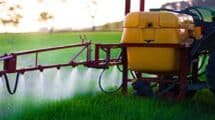Experts believe that the Centre’s decision to provide an additional fertilizers subsidy of ₹28,655 crores for the rabi season will benefit both farmers and the industry.
In a note, ICRA stated that the move will ensure farmers have access to fertilizers at a reasonable price in retail outlets, while also ensuring that the industry does not suffer losses as a result of the elevated international prices of fertilizers and key inputs.
Also Read: ICRA predicts that global fertilizer prices will rise as China suspends exports
One-time offer
The government approved a special one-time package on Tuesday for the payment of additional subsidies for di-ammonium phosphate (DAP) and the three most consumed NPK (nitrogen, phosporous, and potassium) grades. The Nutrient Based Subsidy (NBS) scheme subsidy rates have remained unchanged since the announcement in May 2021.
However, the Union Cabinet has approved an additional payout of ₹438/bag (₹8,760 per tonne) for DAP and ₹100/bag (₹2,000 per tonne) for the three most-consumed NPK grades.
‘The GoI action will help the industry because the phosphatic fertilizer players have been incurring losses on the sale of DAP, which has caused stocks to fall and availability to farmers to become an issue.’
The rabi season
‘According to our estimates, the industry will make a marginal profit on DAP sales, while NPK sales are expected to provide a reasonable level of profitability during the upcoming rabi season. The total subsidy requirement for phosporous, and potassium (P&K) fertilizer is estimated to be around ₹48,000 crores for FY22, of which ₹28,000 crores will be required for the rabi season.
Nonetheless, we believe the GoI will make adequate approved allocations to meet the sector’s additional subsidy outgo, thereby keeping the credit history healthy,’ Sabyasachi Majumdar, Group Head & Senior Vice-President at ICRA, said in a release.
Despite the continuous rise in international prices of finished fertilizers as well as key inputs such as ammonia and phosphoric acid, the availability of phosphatic fertilizer had been strained.
‘We applaud the government’s decision to provide an additional ₹28,655 crores to fertilizer companies as compensation for selling products to farmers at lower-than-market prices. The proposal would help to offset some of the increase in fertilizer prices caused by international factors. Increased fertilizer subsidies in the current fiscal year will undoubtedly benefit farmers,’ said Kalyan Goswami, Director General of the Agro Chem Federation of India.
Due to higher global prices, the sale of DAP had become loss-making, and its availability in the domestic market had decreased sharply as the Kharif season progressed.
Also Read: Ministry of Chemicals and Fertilizers called industry for emergency meeting
‘Rabi season remains the main season of application of phosphatic fertilizers, Prashant Vasisht, Co-Group Head & Vice-President, ICRA Ratings, added. With the increase in the subsidy on these key grades of phosphatic fertilizers, we expect phosphatic fertilizer players to be profitable. As a result, DAP imports and manufacturing of complex grades are expected to increase in the future, ensuring greater availability for the upcoming rabi season.’


















Add Comment